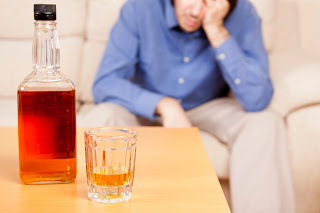Though alcohol is often portrayed as the end-all / be-all of excitement and fun, regular and excessive alcohol abuse can lead to an array of issues. From social elements to health-related problems, the potential losses stemming from alcohol far outweigh any real benefit. In this entry, we will offer up a few reasons to lose the booze.
Humiliation
Even a slight buzz can result in a loss of control, causing drinkers to say and do things they might normally not. This includes sexual encounters, hurtful comments, and engaging in activities that are embarrassing to both user and those surrounding them.
Danger!
Alcohol use can be attributed to an array of dangerous life situations. Driving while intoxicated can result in a death or harm to both the drinker and others on the road. Additional possibilities including homicide, drowning and suicide.
Addiction
As with other drug types, alcohol is an addictive substance. Alcoholism can effectively consume a life, while manifesting throughout a variety of unpleasant and unhealthy mental and physical symptoms, including depression, withdrawal, mood swings, dependence, anger, antisocial behavior, rage, relationship issues, shakiness, nausea, stomachaches, puffiness and blackouts.
Poisoning
An individual who drinks an excessive amount of liquor over a short period of time runs to risk of experiencing alcohol poisoning – a condition characterized by aggressive vomiting. Additional symptoms of poisoning include loss of consciousness, drowsiness, seizures, shortness of breath and diminished glucose levels. Extreme cases of alcohol poisoning may even result in death.
In the Long Term…
Alcohol abuse poses a threat to user health in a number of ways. In addition to liver damage, years of excess can pose serious harm to the heart, brain and pancreas. Those who have become severely dependent may also experience weight loss and malnutrition.
Need Help?
When it comes to the best alcohol treatment centers in United States, Above It All is the place to call. Pick up the phone today, and let our team of addiction specialists help you back on track towards the healthy, happy, and sober lifestyle you've been missing.

